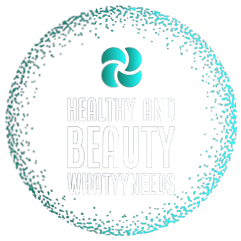Varicose veins are a common condition that affects many individuals worldwide. These enlarged, twisted veins, usually found in the legs and feet, can cause discomfort, pain, and aesthetic concerns. While medical interventions such as sclerotherapy or surgical procedures are available for treating varicose veins, adopting a healthy diet that includes nutritious foods and fruits can also play a significant role in managing this condition. By incorporating specific food items into our diet, we can potentially improve blood circulation, reduce inflammation, and support overall vascular health. In this article, we will explore 30 points on how healthy food or fruits can be beneficial in treating varicose veins.
- Citrus
fruits such as oranges, lemons, and grapefruits are rich in vitamin C,
which helps strengthen blood vessels and improve blood flow, reducing the
appearance of varicose veins.
- Berries
like blueberries, strawberries, and raspberries contain antioxidants that
protect blood vessels from damage and promote healthy circulation.
- Garlic
has anti-inflammatory properties that can help reduce swelling and
inflammation associated with varicose veins.
- Leafy
green vegetables such as spinach, kale, and Swiss chard are high in
vitamins and minerals that support vascular health and promote proper
blood flow.
- Avocados
are a good source of healthy fats that can help improve blood circulation
and reduce the risk of blood clots.
- Fatty
fish like salmon, mackerel, and sardines are rich in omega-3 fatty acids,
which can help reduce inflammation and improve blood flow.
- Nuts
and seeds, such as almonds, walnuts, flaxseeds, and chia seeds, provide
essential nutrients like vitamin E and omega-3 fatty acids that support
vascular health.
- Turmeric,
a spice commonly used in curry dishes, contains curcumin, which has
anti-inflammatory properties that can help alleviate symptoms of varicose
veins.
- Ginger
has blood-thinning properties that can improve circulation and reduce
swelling in the veins.
- Whole
grains like oats, quinoa, and brown rice contain fiber and nutrients that
support cardiovascular health and help prevent varicose veins.
- Red
grapes and berries contain a compound called resveratrol, which can
improve blood vessel elasticity and reduce inflammation.
- Broccoli
and other cruciferous vegetables are rich in antioxidants and fiber, which
can help maintain healthy blood vessels and prevent varicose veins.
- Kiwi
fruit is high in vitamin C and other antioxidants that can strengthen
blood vessels and reduce the appearance of varicose veins.
- Watermelon
is a hydrating fruit that contains lycopene, a powerful antioxidant that
promotes healthy blood flow and reduces inflammation.
- Pomegranate
juice is rich in antioxidants and can help improve blood circulation,
reducing the risk of varicose veins.
- Dark
chocolate with a high percentage of cocoa (70% or more) contains
flavonoids that can improve blood vessel health and reduce inflammation.
- Beets
are high in nitrates, which can improve blood flow and lower blood
pressure, benefiting vein health.
- Cucumbers
have a cooling effect and can help reduce swelling and inflammation
associated with varicose veins.
- Carrots
are rich in vitamin A, which promotes healthy blood vessel development and
can reduce the risk of varicose veins.
- Olive
oil contains polyphenols that can reduce inflammation and support
cardiovascular health, benefiting vein health.
- Onions
contain a flavonoid called quercetin, which has anti-inflammatory
properties and can improve blood vessel health.
- Celery
is a natural diuretic that can help reduce fluid retention and swelling in
the legs, often associated with varicose veins.
- Apples
contain antioxidants and fiber that can improve circulation and help
prevent varicose veins.
- Cherries
are rich in anthocyanins, which can strengthen blood vessels and reduce
inflammation.
- Pineapple
contains bromelain, an enzyme that can help reduce inflammation and
improve blood flow.
- Green
tea is high in antioxidants that can improve blood vessel health and
reduce the risk of varicose veins.
- Lean
proteins like chicken, turkey, and fish provide essential amino acids that
support tissue repair and promote healthy blood vessels.
- Legumes
such as lentils, beans, and chickpeas are rich in fiber and nutrients that
promote cardiovascular health and reduce the risk of varicose veins.
- Yogurt
and other probiotic-rich foods can help maintain a healthy gut microbiome,
which is linked to overall vascular health.
- Drinking
an adequate amount of water throughout the day is essential for proper
hydration and blood flow, which can help prevent varicose veins.
Please note that while a healthy diet can support overall vein health and reduce the risk of varicose veins, it may not completely cure or eliminate existing varicose veins. It is always recommended to consult with a healthcare professional for a proper diagnosis and personalized treatment plan.
Incorporating a healthy diet with nutrient-rich foods and
fruits can be a valuable addition to the management of varicose veins. By
focusing on foods that promote vascular health, such as citrus fruits, berries,
leafy greens, garlic, and fatty fish, we can provide our bodies with essential
vitamins, minerals, and antioxidants that support blood vessel function and
reduce inflammation. Additionally, the inclusion of foods like turmeric,
ginger, nuts, seeds, and whole grains further enhances our overall
cardiovascular health, reducing the risk of varicose veins. While a healthy
diet alone may not eliminate existing varicose veins, it can contribute to
their management and potentially prevent the development of new ones. It is
important to remember that individual results may vary, and it is always
recommended to consult with a healthcare professional for personalized advice
and treatment options. Embracing a balanced, nutritious diet alongside medical guidance
can help us achieve optimal vascular health and enhance our overall well-being.





